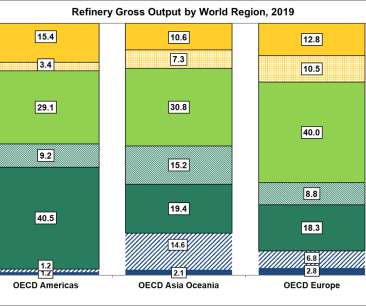IEA: Estonia is pioneering technologies for more efficient and cleaner use of oil shale
Green Car Congress
JANUARY 3, 2014
An article in the latest issue of IEA Energy: The Journal of the International Energy Agency reports that Estonia, which has the most developed oil shale industry in the world, is collaborating in pursuing wider use of oil shale in a cleaner, more sustainable manner. In 2012, Estonia mined 15.86 Different that shale oil—i.e.,


















Let's personalize your content